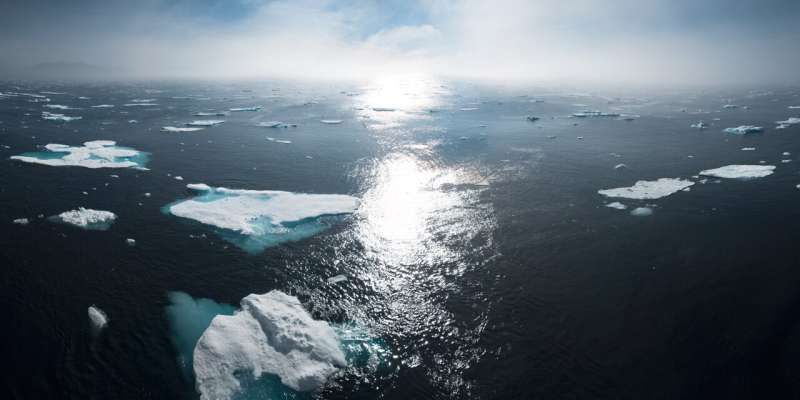Credit: Unsplash/CC0 Public Domain
George Mason University's Jim Kinter says an additional foot of rising sea levels by 2050 will adversely affect U.S. national security while simultaneously inflicting potentially "devastating" consequences to a Virginia economy dependent on a robust military presence.
"The rising relative sea level has several implications for infrastructure at the coast, including more frequent high-tide flooding, greater depth and area of inundation in case of severe weather, and Chesapeake Bay storm surge that can damage or destroy dry-dock, water treatment and other facilities at the water's edge," said Kinter, the director of Mason's Center for Ocean-Land-Atmosphere Studies (COLA) within Mason's College of Science. "Nuisance flooding and catastrophic inundation also affect the residences of military personnel and the communities in which they live."
Kinter's assessment follows the release of the latest climate change report from the National Oceanic and Atmospheric Administration.
Thanks in large part to the burning of fossil fuels, human-caused climate change has accelerated global sea-level rise to the fastest rate in more than 3,000 years, and exacerbated the effects on relative sea levels in eastern North America in particular. By 2050, ocean levels along the U.S. coasts will increase by as much as they had over the previous century, according to the report.
And that directly affects Virginia's 27 military installations, more than half of which are in the Tidewater area, including the world's largest navy base in Norfolk.
"The presence of so many military installations and personnel in Virginia obviously makes the U.S. military a substantial contributor to Virginia's economy," he said. "In the worst-case scenario, if the military finds it too costly or difficult to maintain bases in Virginia and it decides to relocate those bases, the cost to the Virginia economy would be devastating, as other areas experiencing base closures have discovered."
Kinter said moving, elevating or protecting dry docks, roadways, and other infrastructure could cost hundreds of millions of dollars.
The Pentagon has repeatedly called global climate change a national security issue as infrastructure degradation due to climate change could potentially stop or hinder deployment of U.S. military forces in times of crisis.
Kinter suggested a multipronged approach that could potentially mitigate future damages to the commonwealth. One key is for Virginia and the U.S. to reach carbon neutrality by 2050 in the hopes of keeping the level of global warming from reaching 2 degrees centigrade. Another important step would be to curtail groundwater extraction in southern Virginia and identify alternative sources of water. Increasing the resilience of facilities and communities at risk to the inevitable impacts of climate change is also critically important, he said.
More information: Report: oceanservice.noaa.gov/hazards/ … ise-tech-report.html
Provided by George Mason University
























